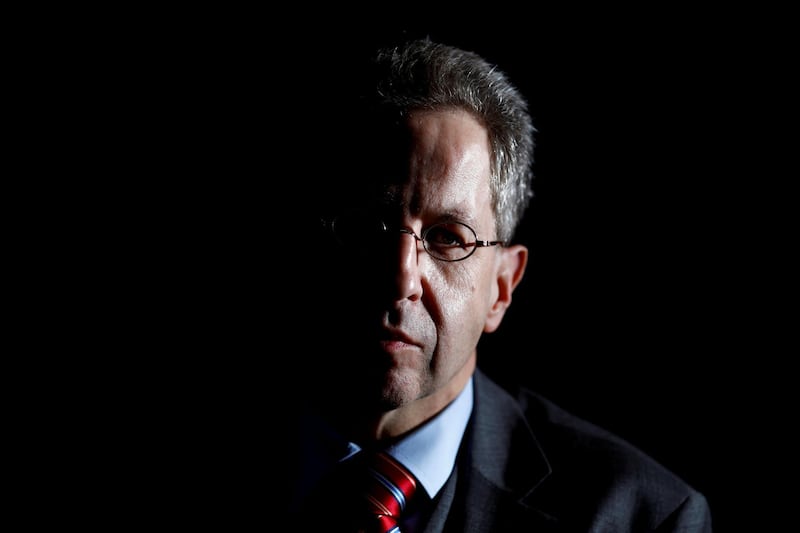Germany's BfV domestic intelligence agency failed to act on two reports warning of security threats posed by the country's far-right Alternative for Germany (AfD) party, it emerged on Sunday.
The report could strengthen calls for the ouster of BfV president Hans-Georg Maassen, whose critics say he has downplayed anti-migrant violence in the eastern city of Chemnitz and have questioned his relationship with far-right politicians.
The scandal brews as Mr Maassen was reported by Der Spiegel to be pushing to double the size of the agency by 2021, to meet the challenges posed by security threats.
Conservative Chancellor Angela Merkel and Interior Minister Horst Seehofer, who heads the Bavarian conservatives, will meet on Tuesday to discuss Maassen's fate with Andrea Nahles, the head of the Social Democratic coalition partner, who has called for the spymaster to be fired.
"Mr. Maassen needs to go, and I tell you, he will go," Mrs Nahles told reporters on Saturday.
Mr Maassen courted controversy earlier this month when he questioned the authenticity of a video appearing to show far-right extremists attacking migrants in the city of Chemnitz, though he later claimed the comments were misunderstood.
Police are investigating charges of anti-migrant violence and numerous cases of people showing the Hitler salute during protests that erupted in Chemnitz after an Iraqi man and a Syrian were arrested in the fatal stabbing of a German man.
Mr Maassen's ties to the far-right have been questioned in the past. This year, a former leader of the AfD's youth wing, Franziska Schreiber, said Mr Maassen had advised ex-AfD leader Frauke Petry on how the party could avoid being put under surveillance by his agency. He has denied giving such counsel.
_______________
Read more:
Merkel 'outraged' by Nazi chants in far-right rally
Fears of ‘second Chemnitz’ as Afghans held over German man’s death
Migrant beaten in racist attack in north German city
_______________
Then last week, the BfV was forced to deny a report by public broadcaster ARD that Mr Maassen had told an AfD lawmaker about parts of a report from his agency before it was published.
The latest allegations centre on reports sent by security officials in two German states – Bremen and Lower Saxony – to Mr Maassen’s agency expressing concern about AfD youth chapters and their suspected ties to extremists that it allegedly ignored.
Both states have put the AfD groups under surveillance, but their reports "were left untouched at the BfV headquarters for six months", according to a senior intelligence source. It said the BfV did not respond to the queiries.
The far-right AfD became the second largest party in Germany’s Budnestag in last year’s elections, serving as the German iteration of a populist electoral wave sweeping Europe.
It was not immediately clear if or when those reports were brought to the attention of Mr Maassen himself.
A spokesman for the interior ministry, which oversees the BfV agency, declined to comment on the Spiegel report, citing restrictions on public information about the agency.
Mr Maassen’s career has been one defined by controversy, in 2002, whilst an employee of the Interior ministry, he tried to prevent a German resident at Guantanamo Bay prison form returning him on the grounds that his citizenship had lapsed.
In 2017, following the Berlin Christmas market terror attack, he said reports that the BfV had undercover agents within organisations linked to the plot, were false. However, documents proving this was the case surfaced earlier this year.







